Precise electromyography testing and nerve conduction studies that pinpoint exactly what’s causing your numbness, weakness, or pain.
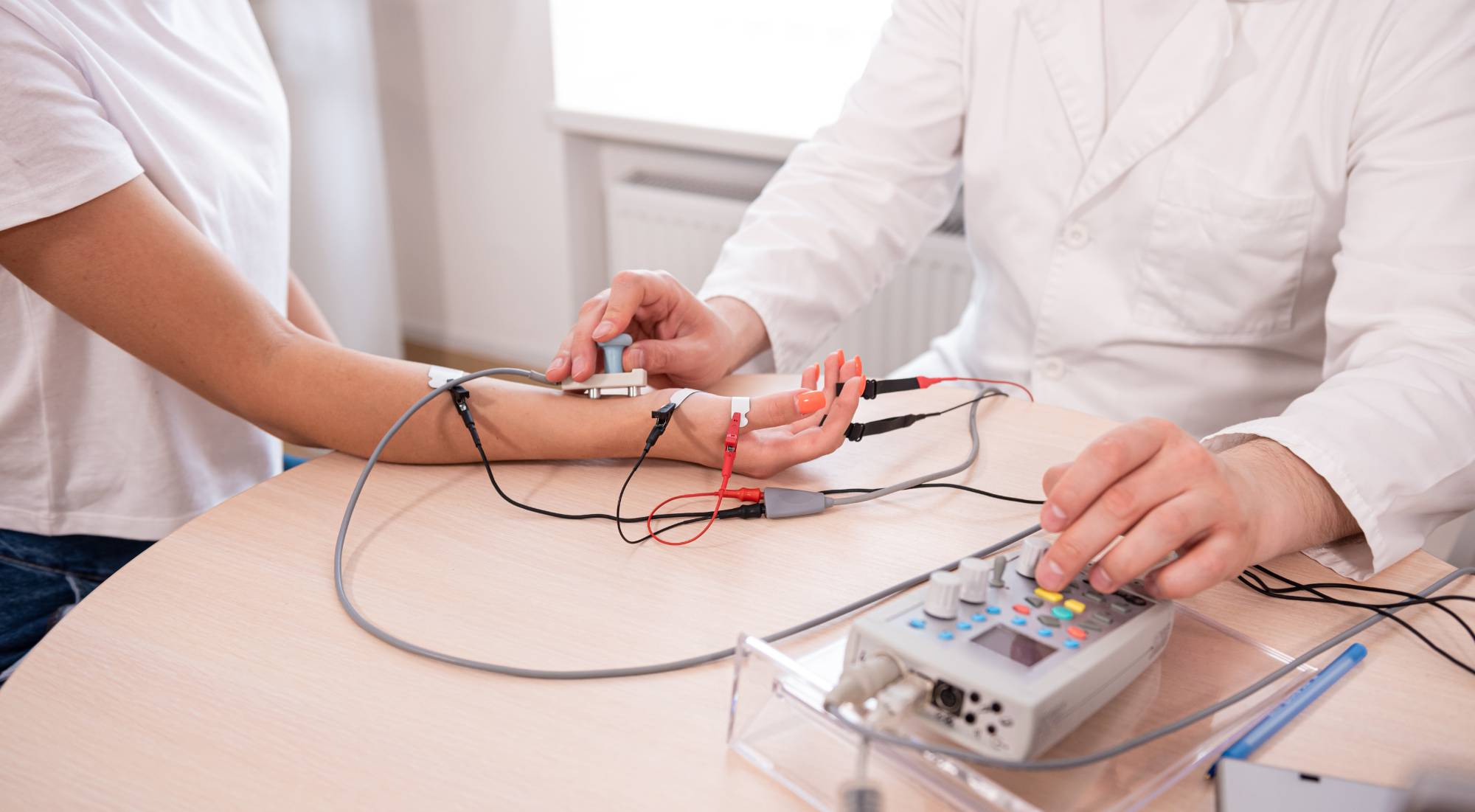
Reviews
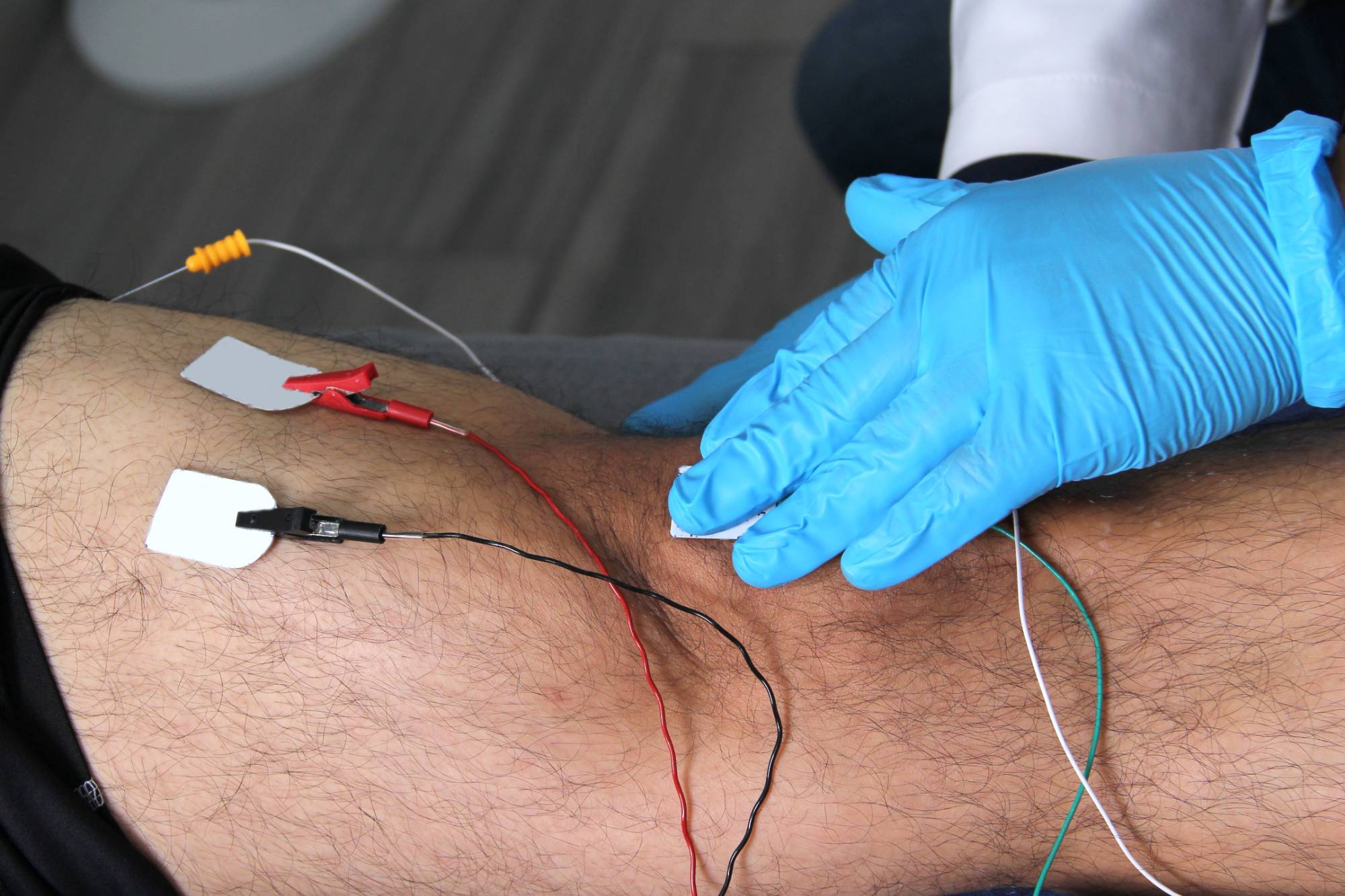
You’ve been dealing with unexplained symptoms long enough. That tingling in your hands, the weakness in your legs, or the persistent numbness that’s affecting your work and sleep – you need real answers, not more guessing.
EMG testing gives you those answers. Within one appointment, you’ll know if your symptoms stem from nerve damage, muscle disorders, or conditions like carpal tunnel syndrome or sciatica. No more wondering if it’s serious or if it’ll get worse.
The clarity you get from accurate diagnostic testing means you can move forward with the right treatment plan. You’ll understand exactly what’s happening in your body and have a clear path toward feeling better.
NY Spine Medicine has been serving Queens residents for years, specializing in diagnosing and treating nerve and spine conditions that impact daily life. We understand that when you’re dealing with unexplained symptoms, you need specialists who take your concerns seriously.
Our practice focuses exclusively on conditions affecting the spine, nerves, and muscles. This isn’t a general practice trying to handle everything – we’re a specialized clinic where EMG testing and nerve diagnostics are core services we perform daily.
Located conveniently in Ozone Park, we serve patients throughout Queens who need accurate diagnostic testing without traveling into Manhattan or dealing with hospital wait times.
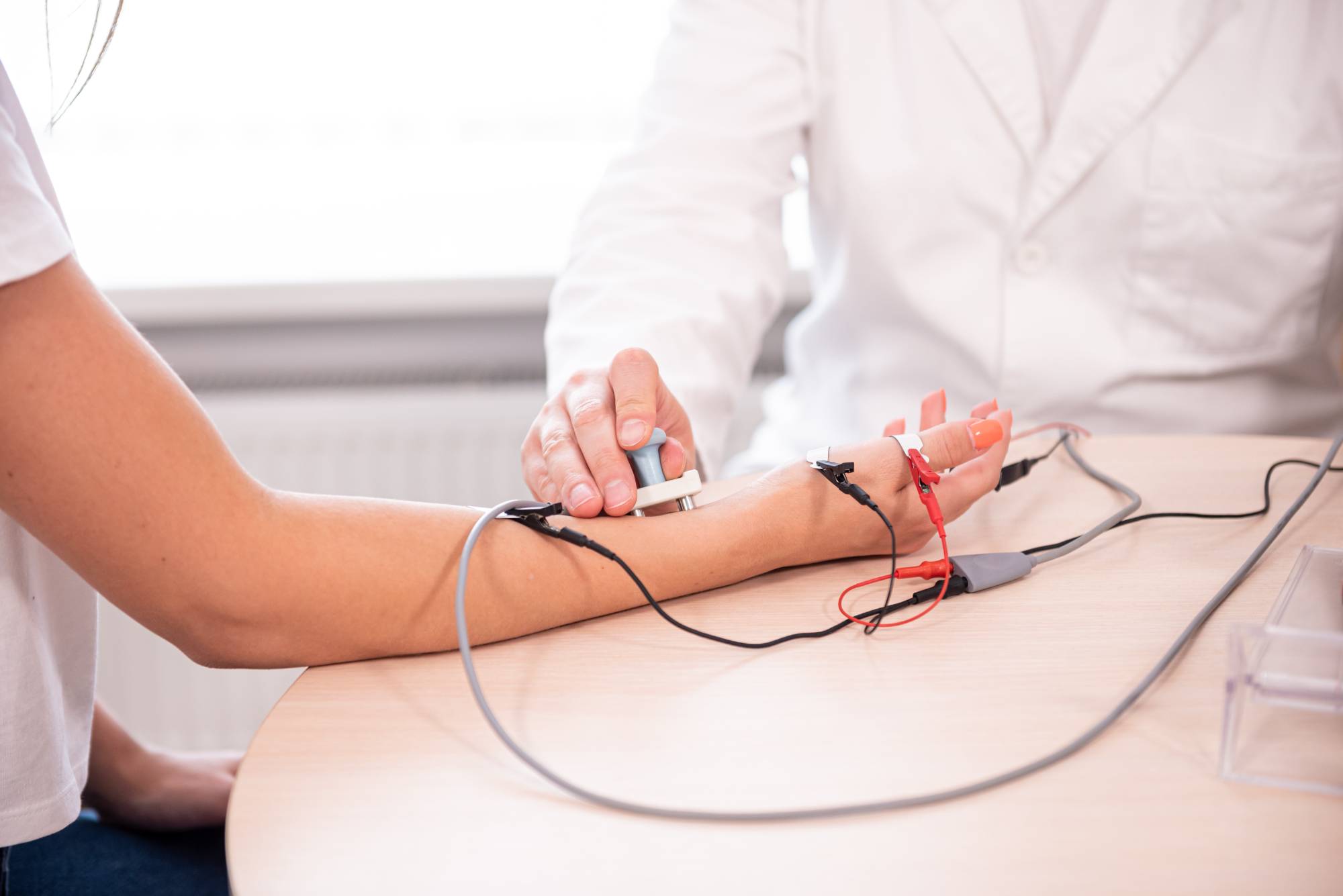
Our EMG testing process starts with a consultation about your symptoms and medical history. You’ll discuss when the symptoms started, what makes them better or worse, and how they’re affecting your daily activities.
The actual testing involves two parts. First, nerve conduction studies use small electrical pulses to measure how well your nerves transmit signals. Then, electromyography testing uses thin needles to measure electrical activity in your muscles. Most patients describe the discomfort as minimal – similar to getting blood drawn.
The entire appointment typically takes 45-60 minutes. You’ll get your results the same day, along with a clear explanation of what the findings mean for your condition. If treatment is needed, you’ll leave with a specific plan for addressing your symptoms.
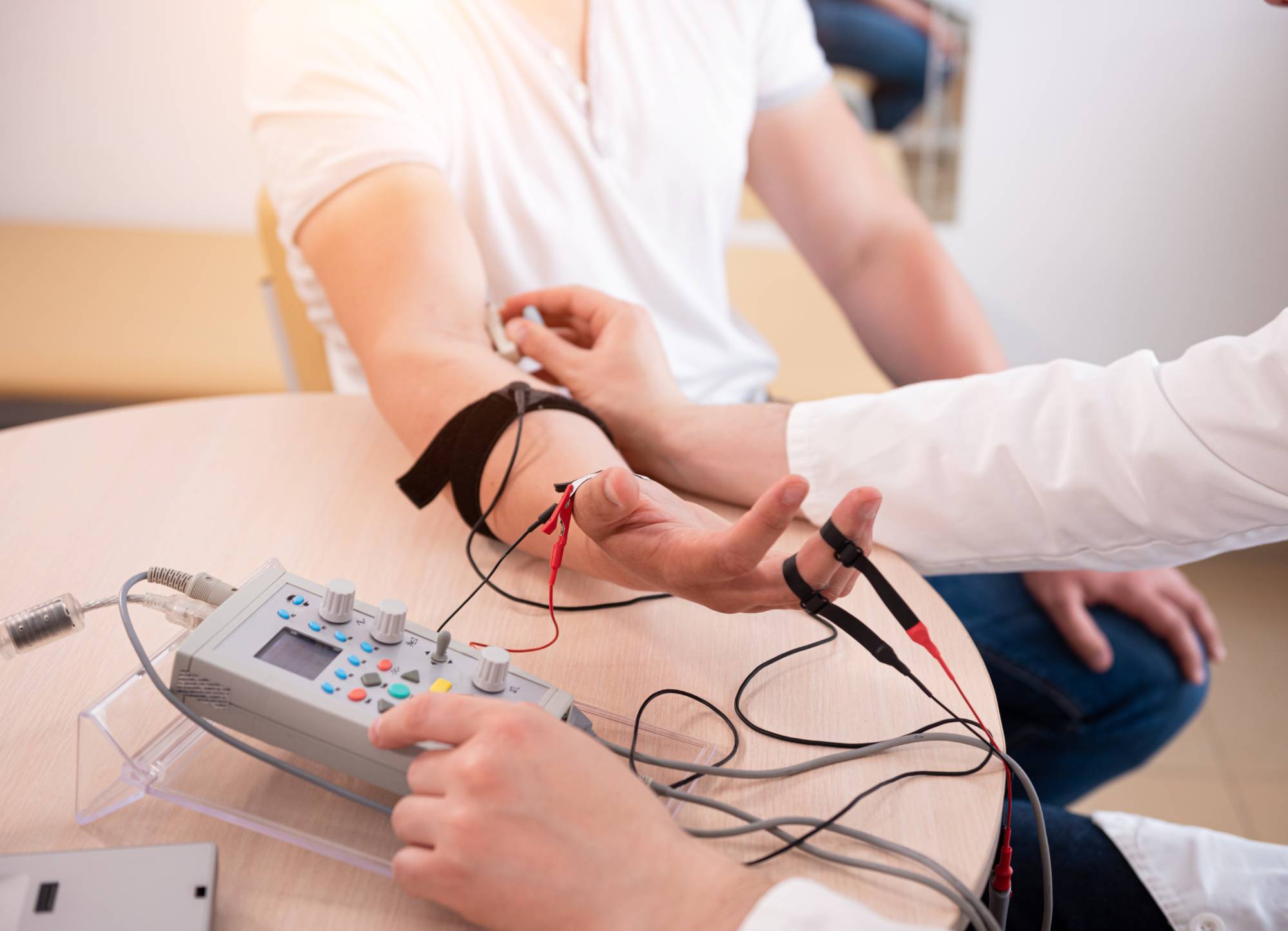
Ready to get started?
Your EMG testing includes both electromyography and nerve conduction studies, giving a complete picture of your nerve and muscle function. This comprehensive approach catches conditions that single tests might miss.
The testing can diagnose carpal tunnel syndrome, peripheral neuropathy, pinched nerves, muscle disorders, and spinal nerve compression. For Queens residents dealing with work-related repetitive strain or age-related nerve changes, this testing provides the clarity needed for effective treatment.
You’ll receive detailed results explaining nerve conduction speeds, muscle response patterns, and any areas of concern. The findings directly guide treatment recommendations, whether that’s physical therapy, medication, injections, or other interventions specific to your condition.
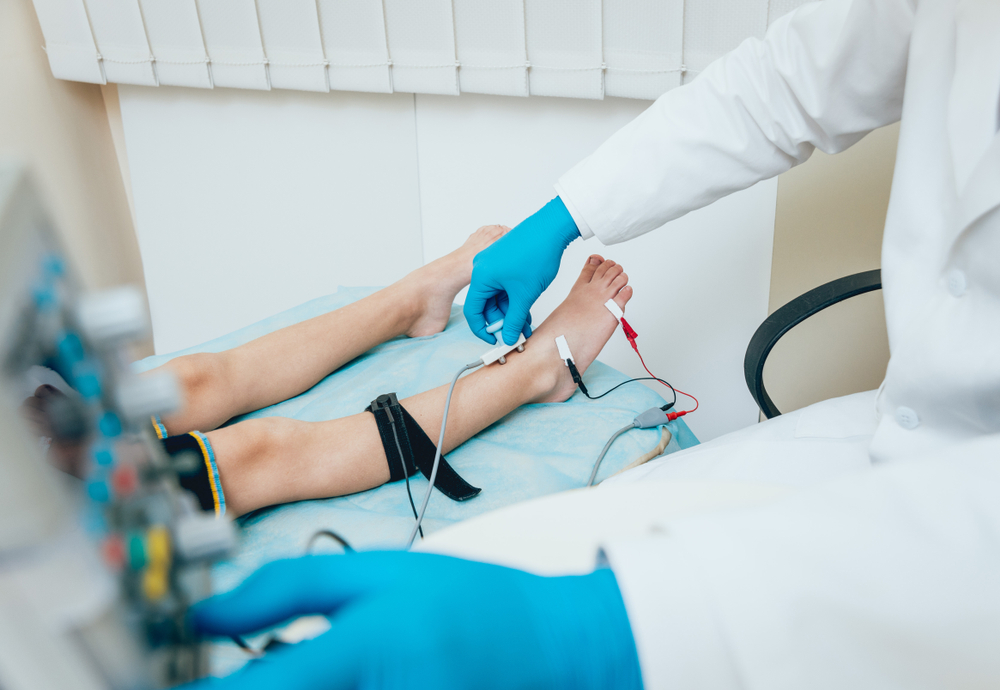
New York:
Florida:
Support